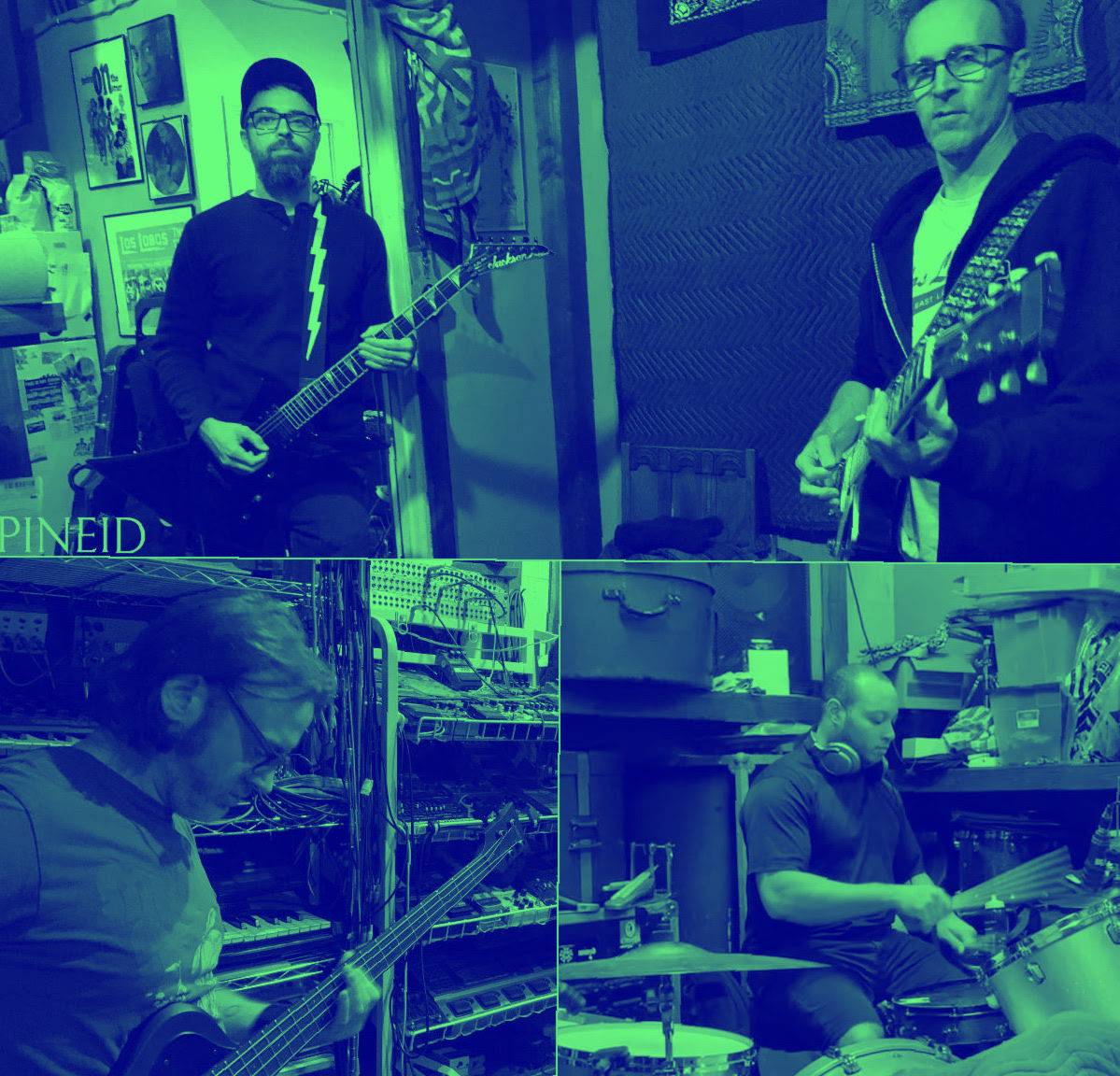Prog-rock. Concept album. Two terms that punk rock obliterated from the annals of cool. And yet, here it is 2022 and new L.A. venture Pineid has thrown down the gauntlet to prove that progressive leaning heavy rock can be powerful and challenging, concept albums can convey existential angst and fury.
But as musicianship goes, this is no ordinary band. It features guitarist Jamie Kime (The Zappa Band, Dr. John, Grammy winner with Zappa Plays Zappa), bassist Pete Griffin (Giraffe Tongue Orchestra, Dethklok, Dr. John, Grammy winner with Zappa Plays Zappa), drummer James Pope (Phoenix Afrobeat Orchestra, The Gentlemen of Leisure) and vocalist/guitarist Jeff Sites (Butcher) making perfectly and cleverly executed post-metal punk rock.
Pineid’s 9-song debut album Blue Doom was produced by Toshi Kasai, known for his work with Melvins, Tool, Robert Fripp, Keiji Haino and many more. Blue Doom is the fledgling release from a new label started by Kasai and Sites called Sympatry Records. Some sonic touchstones include Voivod, Melvins, Tool, King Crimson, U.S. Maple, et al.
“I say this with some trepidation, but Blue Doom is a concept album,” explains Sites. “It is about the things that cause us to make drastic changes in our lives. Some of it is prescriptive, some of it personal, some is paleoanthropology. Lyrically, I try to examine setting out, false destinations, trials, anxiety, forgiveness and plunging into certain death. The music oscillates between supporting this narrative, and serving as a reminder that all stories are simplifications and vulnerable to destruction at the hands of reality.”
“The band members have been friends for a long time,” Sites continues. “Careers, families, life and other musical endeavors conspired to make the writing process a challenge. We did nearly all of the compositions in pairs. This meant that I drove around town with a USB stick full of session files for over a year. As it happened, the world ground to a halt right as we began to record. Getting into the studio for even a day or two took weeks to plan. We were not immune to the feelings of uncertainty and rebalancing of priorities with which most everyone dealt. In a way, the difficulties we faced in the process mirrored the story we wanted to tell. Much of the credit goes to Toshi for holding it together. He did a lot to keep the process organic and adaptive when so much else had gone virtual and synthetic.” ✪
![[Futuristika!]](https://futuristika.org/wp-content/uploads/2020/12/futuristika.png)
